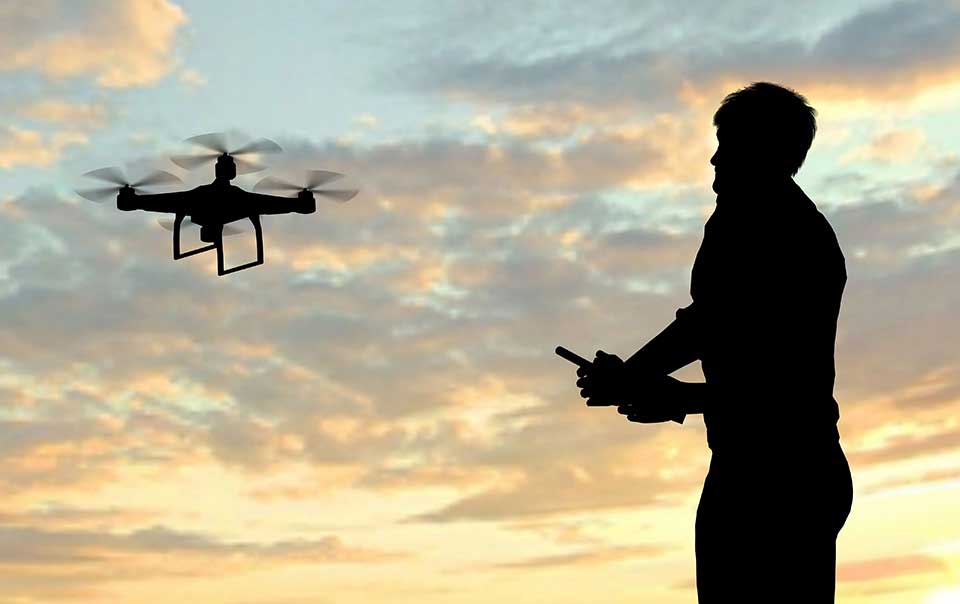|
Did you get a drone for Christmas? Here's some things to know before you fly it.

You unwrap your new drone, charge up the batteries and can’t wait to test it under the open skies. But there are a few things you need to know before you take flight. Unmanned aircraft are subject to Federal Aviation Administration (“FAA”) rules that govern when, how and where you can fly a drone. They also are subject to state and possibly local regulations. Drones are capable of causing significant property damage or personal injury, so it’s a good idea to make sure you have appropriate insurance.
“As soon as it goes airborne, the drone can create risks,” says Nate Stanton, of Travelers Property Claim. Drone operators who don’t take the time to set up proper fail-safes and other safety features such as the “return to home” setting may lose their drones on the first run if something goes wrong. Take the time to read through the owner’s manual. It will provide information on all the features designed to keep your drone safe, as well as how high winds a can affect the drone’s operation and its ability to return home.
Here are some other considerations to know before you fly:
- Register online with the FAA. Before your drone leaves the ground, you must register it with the FAA if it weighs more than 0.55 pounds. Even if you’re flying for fun and not for commercial purposes, registration is required for all drones this size, which also cannot weigh more than 55 pounds. You’ll also need to label your drone with your FAA registration number and your contact information, to help you recover it if you should lose it.
- Know when and where you can fly. A key component for safe drone operation is maintaining visual line of sight. Operating a drone in proper weather conditions and during the daylight hours will help in meeting this requirement. Also, drones cannot be flown within five miles of an airport without previously notifying the airport and air traffic control. Do not fly your drone directly over people who are not involved in operating it, and fly at or below 400 feet. Be aware of airspace restrictions, including stadiums, schools, hospitals and power plants. The FAA’s B4UFLY Smartphone App can help you find restrictions where you want to fly.
- Make sure you’re covered. Regardless of how fast a drone is travelling, it can damage property and possibly injure people. Check to see that you’re covered before you operate your drone. The FAA requires drone operators to report accidents if they cause more than $500 in damage.
- Protect your data. Most drone metadata is written to an unencrypted SD, or “secure digital,” card. If you protect your drone, you help protect your data, which includes photos taken by the drone tagged with the latitude and longitude. Many drone operators take photos of themselves, their homes and their other interests, which means that a lost drone could have identifiable information on it.
- Understand commercial restrictors. Before you hire a wedding photographer to record your event, or someone to take aerial photographs of your house for sale, it’s important to know the commercial restrictions on flying a drone. Make sure that the commercial drone operator you hire has the proper FAA license and insurance to cover the operation. There are also restrictions on flying directly over people, which should be considered before hiring a drone operator for your next function. Also know that your homeowner’s policy might not cover any potential damages caused by the commercial use of your drone.
Drones are popular gifts for tech lovers, who enjoy navigating their unmanned aircraft and taking aerial video and photography. Taking the time to get to know your drone and to understand the FAA, state and local restrictions before you fly could be the difference in making sure your drone returns home at the end of its flight.
Post by Travelers Insurance: https://www.travelers.com/resources/individuals/things-to-know-before-you-fly-a-drone
Posted Thursday, January 11 2018 10:01 AM
Tags : Tips and Tricks
|